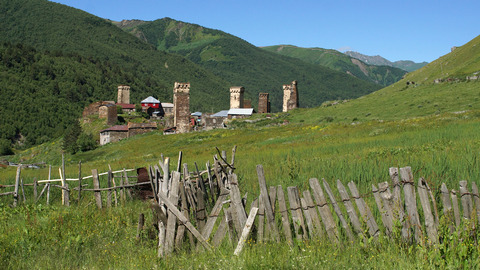This working group will focus on poverty, inequality, social disadvantage and opportunity structures in rural areas.
In many European countries and in North America poverty is more prevalent in rural or peripheral areas. In other countries poverty is less prevalent in rural areas. In many instances, rural poverty may be less visible but present nonetheless. Meanwhile inequality and social exclusion are produced and reproduced across rural and urban areas, affecting many dimensions of people’s lives. A major element in relation to poverty, inequality and social disadvantage is opportunity structures (principally the availability of jobs and public and private services). Spatially fixed opportunity structures shape accessibility-related inequalities that are strongly intertwined with indicators of social structure, such as everyday mobility and the structure and size of social networks. The intersection of spatial and social issues gives rise to various place-based forms of disadvantage. While urban studies engage with a long-established debate on socio-spatial differentiation and neighbourhood effects, in rural studies few systematic accounts on the role of local and regional opportunities are to be found. In order to obtain a broader picture, findings from national and regional case studies need to be cross-checked for other national policy contexts and regional governance settings.
Against this background, the Working Group invites rural scholars to consider one or more of the following questions:
- What are the causes of rising and persisting inequality and precarity in rural contexts?
- What processes and power relations drive social exclusion in different rural contexts?
- How are various dimensions of social exclusion associated with income inequality and poverty?
- What is the role of opportunity structures in producing and reproducing inequalities in rural contexts?
- How is this experienced by young people, by older people, by different social classes, genders and ethnicities across rural Europe and in North America today?
- What resistance is offered or strategies adopted, individually or collectively, in the face of disadvantage, disempowerment, discrimination and opportunity deprivation in rural places?
- How do different national welfare systems influence the structure, availability and governance of opportunity offers in rural areas, and what does this mean for social disadvantage?
- Which insights can rural research gain from the urban studies debate on neighbourhood effects?
We welcome theoretical examinations of the determinants and consequences of rural poverty, inequality (including ‘precarity’), social disadvantage and opportunity structures as well as theoretically-driven empirical papers at both the micro (individual or household) and meso (area-based) levels. The relationship between social inequality and spatial inequality is of particular interest: one aspect of this is the extent to which local action can address wider spatial injustice (or, in the terms of the European Commission, ‘territorial cohesion’). Papers examining the consequences of poverty, income inequality, social disadvantage and opportunity structures for individuals and for communities are also of interest. Finally, papers shedding light on both contemporary inequalities and persistence of spatial inequalities are also welcome. The Working Group is planned as a traditional long paper workshop.
| Session 1 | Conceptual issues and rural-urban comparisons |
| Wed, 26.6. | |
| 9 – 10.30 am | |
| Josef | |
| Session 2 | Rural inequality and the labour market |
| Wed, 26.6. | |
| 11 – 12.30 am | |
| Mark | |
| Session 3 | Poverty, deprivation and disadvantage – |
| Thur, 27.6. | mulitplex concepts and interrelations |
| 9 – 10.30 am | |
| Annett | |
| Session 4 | Approaching the idea of ‘opportunity structures’ |
| Thur, 27.6. | |
| 11 – 12.30 am | |
| David | |
| Session 5 | Methodological and policy issues |
| Thur, 27.6. | |
| 2 – 3.30 pm | |
| Annett (and all for final discussion) | |
Abstracts
Working Group Session 1 Wed 09:00 – 10:30
- Ilona Kiausiene – ECONOMIC AND SOCIAL DISPARITIES AMONG RESIDENTS IN REGIONS
- Daniel T. Lichter – Geographic Mobility and Immobility among the Rural Poor: Rural Areas as Collecting Grounds for America’s Poor?
- Katja Rackow – Facing inequality in Northeast Germany: Neighbourhood as a social resource?
- Ilona Matysiak – Sentimental or practical? Young university graduates’ motivations to live in rural areas in Poland
Working Group Session 2 Wed 11:00 – 12:30
- Markus Meckl – UNDERSTANDING IMMIGRANT WOMEN UNDEREMPLOYMENT IN NORTHERN ICELAND
- Jakub Husák – Job Opportunity for Solving Social Exclusion in Czech Rural Areas – Strategies Adopted by Rural People
- Wojciech Knieć – Persistence of high and long-term unemployment on developed rural areas as a result of informal economy and unfair labor practices. The case study from Kuyavian rural communites in Central Poland.
- Josef Bernard – Changing forms of disadvantage and opportunities in transforming rural peripheries in the Czech Republic and Germany
Working Group Session 3 Thur 09:00 – 10:30
- Sandra Contzen – Tracing gender inequalities in Swiss agriculture and their consequences for women’s social security
- András Vigvári – The “ruralisation” of housing crisis in Hungary: the transformation of allotment gardens
- Alexandra Szőke – A Sure Start? Child welfare services, professionals and the recreation of socio-spatial inequalities in Hungary
- Martin Phillips – Inequalities, disadvantage and displacement: neglected dimensions of rural gentrification?
Working Group Session 4 Thur 11:00 – 12:30
- Monika Alisch – Self-organized Assistance Services in Rural Germany – Opportunity Structures between Participation and Fragility
- Florence Becot – US Farm households’ access to health insurance and health care along the life course
- Ismaila Temitayo SANUSI – Examining Poverty, Inequality and Social Disadvantage in Rural Nigeria using Opportunity Structure Theory
- Zsuzsanna Réka Elek – Consequences of inadequate opportunity structures on teenage childbearing
Working Group Session 5 Thur 14:00 – 15:30
- Gusztáv Nemes – LEADER – an instrument for spatial justice? – a comparative study across Europe
- Mark Vicol – Whither sustainable livelihoods? Understanding rural inequality through a political economy-informed livelihood pathways approach
- Esperanza Vera-Toscano – The Dynamics of Low Income in Rural Britain 1991-2008: analysis of the BHPS.

